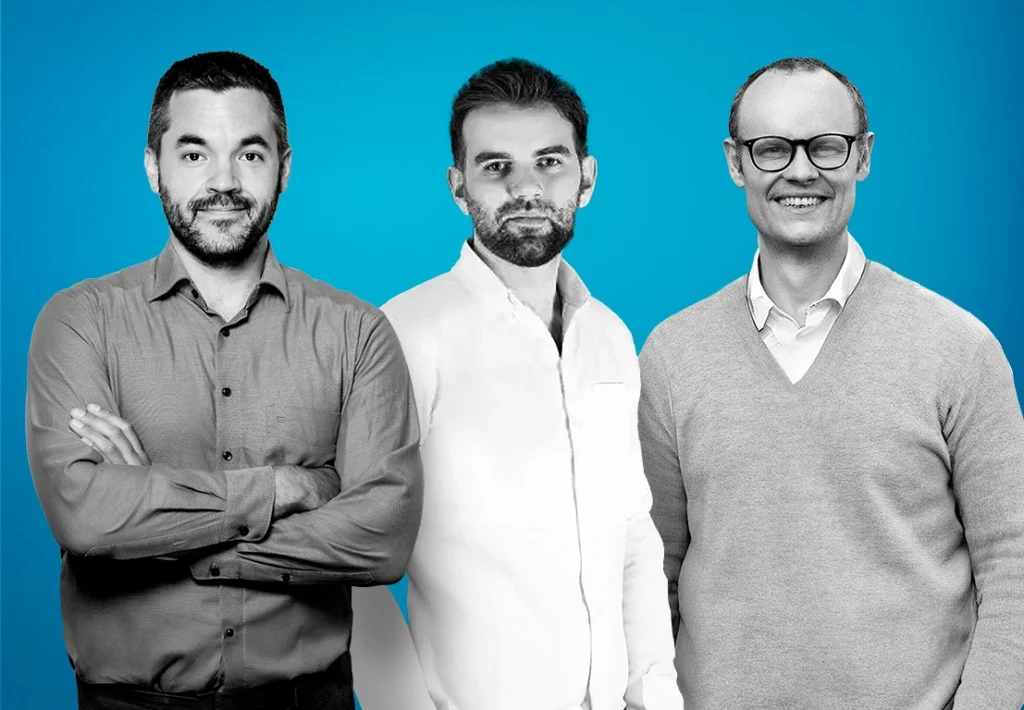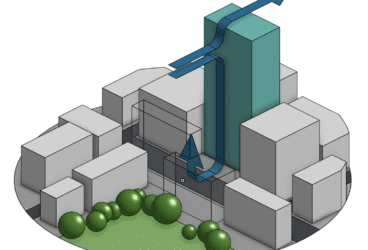Last week, SimScale hosted an insightful session as part of our Engineering Leaders Webinar Series: “Accelerate Decarbonization: AI-Driven Solutions for Heat Networks and Data Centers.” Hosted by David Heiny, CEO and Founder at SimScale, and featuring experts Dr. Joel Gustafsson, Director at JG Consulting, and Sam Bromley, Founder and Design Lead at Element Design, the webinar explored cutting-edge strategies for integrating air-source heat pumps (ASHPs) into urban environments and optimizing energy systems for heat networks and data centers. Here are the Top 5 Highlights from the webinar.
On-Demand Webinar
If these highlights caught your interest, there are many more to see. Watch the on-demand Engineering Leaders Series webinar from SimScale on Accelerating Decarbonization with AI and Cloud-Native Simulation by clicking the link below.
1. The Role of Air-Source Heat Pumps in Decarbonization
Joel explained how air-source heat pumps are critical in the UK’s journey toward net-zero emissions, as heating accounts for nearly a third of the country’s carbon footprint. ASHPs, when deployed at scale, can replace fossil fuel-based heating systems in urban areas, providing cleaner, cost-effective, and resilient heating solutions. However, these systems come with challenges such as noise, air dispersion, and cold air recirculation that must be addressed to ensure operational efficiency and community comfort.
2. AI and CFD: Transforming Design and Deployment
Joel and Sam emphasized how simulation and AI play a pivotal role in ASHP integration. Using cloud-native simulation tools like SimScale, engineers can evaluate design configurations for heat networks in complex urban environments. Sam showcased how simulations identify risks such as recirculation and cold air plumes early in the design phase, helping optimize placement and airflow to improve system performance and pedestrian comfort.
3. Balancing Efficiency, Comfort, and Noise Mitigation
Both experts delved into the trade-offs involved in designing ASHP systems. Larger fans and higher air velocities improve dispersion but increase noise levels, a critical concern in dense residential areas. SimScale’s simulation capabilities enable engineers to test various configurations, balancing these competing factors while ensuring compliance with noise and thermal comfort regulations.
4. Overcoming Urban Design Challenges with Simulation
A detailed case study highlighted the integration of ASHPs into a central London housing development. Challenges included limited rooftop space, proximity to high-value residences, and potential recirculation of cold air. Through iterative CFD simulations, Joel and Sam tested and validated solutions, such as raising heat exchangers with snorkels to enhance airflow and minimize disruption to nearby residences.
5. Decarbonizing Data Centers with Heat Recovery
Data centers are significant sources of waste heat, which can be repurposed to supply local heat networks. Joel shared insights into leveraging heat pumps for this purpose, turning what is often considered a pollutant into a valuable energy resource. While these systems are still in the early stages of adoption, their potential to reduce both energy consumption and emissions is promising.

Driving Decarbonization in Heat Networks and Data Centers
The future of decarbonization lies in the seamless integration of AI, cloud-native simulation, and innovative heat pump technologies. Overcoming challenges such as cold air recirculation, noise management, and urban design constraints will require engineering ingenuity and collaboration across industries. By adopting advanced simulation tools early in the design process, companies can not only optimize performance but also ensure sustainable, efficient, and community-friendly energy solutions. The path to net-zero emissions is complex, but with the right tools and strategies, engineering teams can lead the charge toward a more sustainable future.
Missed the live session? You can access the full recording here.
For more information about SimScale’s role in decarbonization projects, visit our website. Stay tuned for future sessions in the Engineering Leaders Webinar Series!


